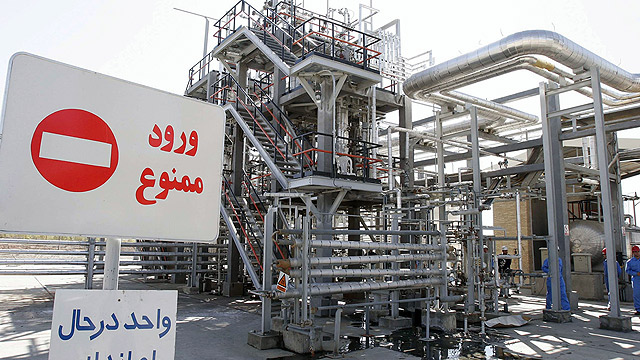Can we live next to an Iranian Syria?
Jamal Khashoggi/Al Arabiya/September 09/15
Like any war, the one in Syria will eventually be over, but it could lead to a permanently bad outcome. Today’s generation does not remember Israel being described as a dagger in the heart of the Arab nation. In the 1960s, Arab caricaturists drew the map of the world with blood trickling from where Palestine is located. Israel’s dagger continues to make us bleed.
A sectarian, Iranian Syria would be the second dagger, one that will remain for centuries, waging one war after another with us. It might not benefit from Russian support alone. Even Israel is ready to protect it – it is a Jewish state, so will feel less hostile next to sectarian and ethnic statelets: Shiite-Alawite, Kurdish and Druze, among others.
These entities cannot be compared to Sunni Arab countries, which together represent the whole Arab body. However, this body is weak because of disputes and totalitarianism. A caricaturist might draw this body with many daggers stabbing it. Arabs did not notice what happened on Aug. 2 in Istanbul, even though Turkish intelligence provided all the details. In a hotel, three Syrians from Ahrar al-Sham, a rising force in the Syrian revolution, met with three Iranians and a Hezbollah representative, who remained silent throughout the meeting. The Iranians led the negotiations as if “Syria was theirs,” one of the Syrians said.
This meeting affects Arabs’ national security. Iranians are negotiating to shape the future of Syria as if it was their own country, angering and hurting the Syrian negotiators. What happened that day in Istanbul revealed the reality of the situation in Syria and its future prospects. It is a mere sectarian project. Iranians were bargaining with Ahrar al-Sham over the displacement of Shiite Syrians to areas under their control, in exchange for the withdrawal of Syrian fighters from the village of Zabadani, which they wish to control. In short, Iran is redrawing the map of Arab Syria.
Hezbollah
In order for Arab nationalists to realize the coming danger, they must see things from a sectarian point of view because Iran’s regional motives and alliances are purely sectarian. This battle determines the fate of Hezbollah, which is firmly established in Lebanon and is disabling politics there. No elections will take place in Lebanon before Hezbollah and Iran resolve their battle in Syria, which will merely constitute a supply line for the party. Iranians are negotiating to shape the future of Syria as if it was their own country.
If Damascus falls completely to the Syrian people, there would not be a pro-Hezbollah government. This was evident from the first day of the peaceful revolution, which called for elections, democracy and pluralism. Neither arms nor sectarian slogans were raised. However, Hezbollah took the side of the regime until it made democratic, free Lebanon an enemy of the revolution. If the revolution succeeds, arms supplies to Hezbollah will stop, and it will retreat to being a party that draws its strength from polls and its Shiite base, heeding the demands of its people and providing them with better services and more jobs. Hezbollah will then give up its dream of a great Islamic republic.
Weep, Arab world!
Khaled Almaeena/Al Arabiya/September 09/15
The pictures in most newspapers in Europe and America are those of dead bodies washed up on Europe’s shores. These are desperate Arabs mostly Syrians fleeing the war. It is a tragedy and crisis at Europe’s doorstep but the real tragedy is the Arab world. The heartbreaking image of the innocent toddler washed up on a Turkish beach after the boat he was in with his fleeing family capsized reveals the senseless brutality that is going on in Syria, Iraq and other parts of the Arab world.
It is a picture that should shake the Arab world and especially the Syrian regime whose relentless assault has led to this humanitarian disaster. The murderous takfiris and jihadis who have created this turmoil have also paralyzed the Arab world, depriving it of its peace and security. The UN says that more than 2,500 people have died while attempting to reach Europe. Land travel is also fraught with danger crossing dangerous deserts. Attacked by merciless bandits and exposed to the elements, these desperate people are risking their most precious possession – their lives.
How long will the Arab world continue to suffer and when will the warring factions decide to call it quits? Some who reach the land mass of Europe are met with indifference, contempt and hostility. Hungary blocked thousands who were trying to transit the country to go to Germany, but the most criminal act was in the Czech Republic where authorities wrote numbers in indelible ink on the skin of refugees whom they had pulled off trains. The Czech Republic already known for its hostility to the aspirations of the people of Palestine (it was among the nine who voted against Palestine) continued its policy. The right-wing elements there showed no mercy.
However, the two most welcoming countries in Europe have been Germany and Sweden. Berlin is preparing for some 800,000 asylum applications this year and Sweden, with just two percent of the EU’s population, last year accounted for 13 percent of all applications and 18 percent of all successful ones. There have been emergency meetings at the highest level among European states to study the influx of an almost unsustainable number of asylum seekers. A BBC correspondent asked me why Arab and Gulf states are not taking the refugees. I replied that Jordan and Lebanon have already taken about four million. The Turks also have accepted tens of thousands. As for the Gulf it is geographically difficult for them to cross this tract of land.
Rising to the occasion
However, this does not absolve the Arabs from blame. Dictatorship and iron fist policies have led to this tragic situation. We watch as this tragedy of epic proportions unfolds daily in front of us. We criticize European nations for tightening their borders. We accuse them of not rising to the occasion and resolving a crisis or solving the humanitarian problem that is of our own doing.
Decision makers in the Arab world have failed their people and they have proved their incompetence and their inability to come up with appropriate solutions to their problems. They continue to lack wisdom and are obsessed with power and control. How long will the Arab world continue to suffer and when will the warring factions decide to call it quits? How many more children’s bodies will be washed ashore? How many more lives will be lost and how many refugee camps will the world have to produce? For how long will the forces of evil continue to threaten innocent Arab families? Are there no voices of wisdom left in the Arab world? Weep, Arab world!

















